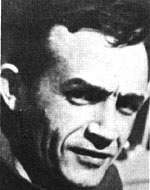Revivo, Hananiah
Son of Masoud z “l and Esther was born on April 14, 1940 in Morocco. He immigrated to Israel with his family in 1955. Hanania studied in his room as a child and in various yeshivas throughout Morocco. At the age of eight he was orphaned from his father and when he immigrated with his mother and his brothers to Israel they settled in Hazor Haglilit. At the request of his mother, Hananiah began studying at a yeshiva in Meron. After a while, the family moved to Jerusalem, and Hananiah continued his studies at the Beit Ya’akov elementary school in Baka and in the “high school” in Jerusalem. In the morning Hanania worked as a locksmith and helped his mother in the family’s agriculture. “Even as a child, Hananiah began to support the family,” says his friend Yehuda. “His loyalty to his family is an example of many, not only from an economic point of view, although he has moved away from fulfilling the practical commandments of religion. He loved the common man, the popular and the modest, and he hated the attitude of condescension and pride, he had a special love for Jerusalem, and when he spoke about Jerusalem, his eyes shone like a ray of light. ” “His kindness was known to all,” adds his friend, Chava. “When he served in the Sinai, Hanania helped me and my children overcome the hardships and often visit our home.” Hanania was drafted into the IDF in February 1958 and volunteered for Nahal. During his regular service, he stayed away from his home and rarely visited his family. He was a model soldier, and his commanders never complained about him. At the end of his regular service, Hanania volunteered for the regular army and took part in various professional courses, including a quartermaster course. Although he did not see his future as a soldier in the career army, despite his difficulties in the officers’ course, Hanania even completed a parachuting course and served for many years as a paratroop officer. When he was granted the rank of Major, Hanania decided to move to serve in a managerial position despite his great love for his role as a paratrooper. Ayalon and later asked to move and serve in Jerusalem, “I remember those long days and nights in which we contributed to the establishment of one of the most prestigious units of the IDF … Hanania was an officer, and I was lower than him,” Yehuda recalls. We had no beds, and Hananiah insisted that he sleep on the floor and give me a place of honor on the desk of his office, and he was an excellent professional in his military field, and here too he discovered the modesty that guided his life. To Israel. The long and shared journeys to the canal were an unforgettable experience. He used to break free, to gush, with his special sense of humor. I did not feel the difficulties of the long road. In the Six Day War, Hananiah ran with supreme courage from truck to truck to encourage the soldiers under heavy fire. He did not stop worrying about each and every one of them and tried to encourage them as much as he could. “His commander wrote to the family:” Hananiah quietly and modestly did his job and did not shy away from the workload of all the positions he filled ” On January 30, 1975, Hananiah was killed while performing his duties in the Jerusalem area and was brought to eternal rest in the military cemetery on Mt.Herzl in Jerusalem. He left behind a wife, son and daughter, mother and brother. “My father is a very good man, because he helped people,” wrote his daughter, Michal. It was not possible that Avi died, but my mother did not lie and I believed her, and his family donated a Torah scroll to him in memory of the synagogue in his Jerusalem neighborhood.
